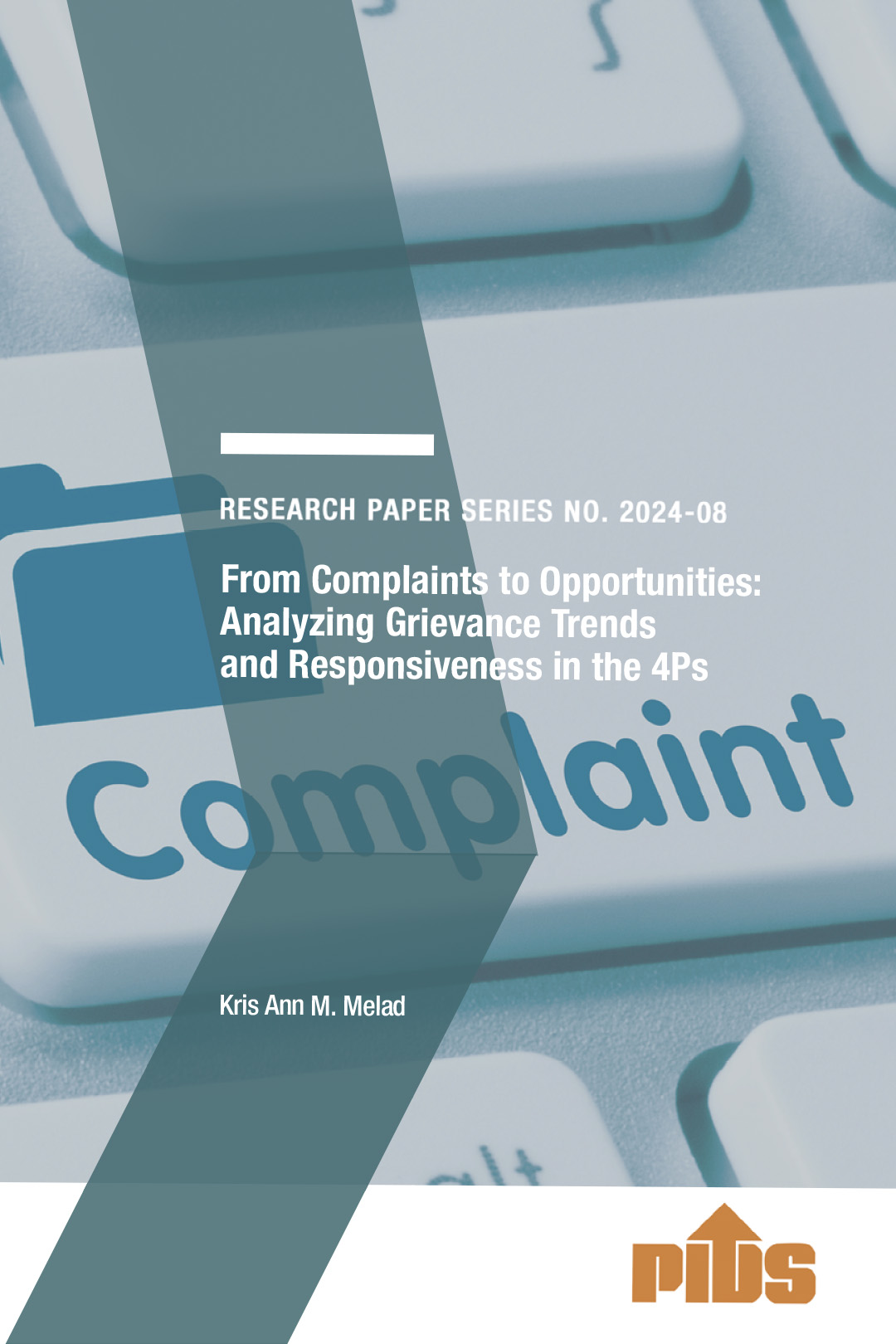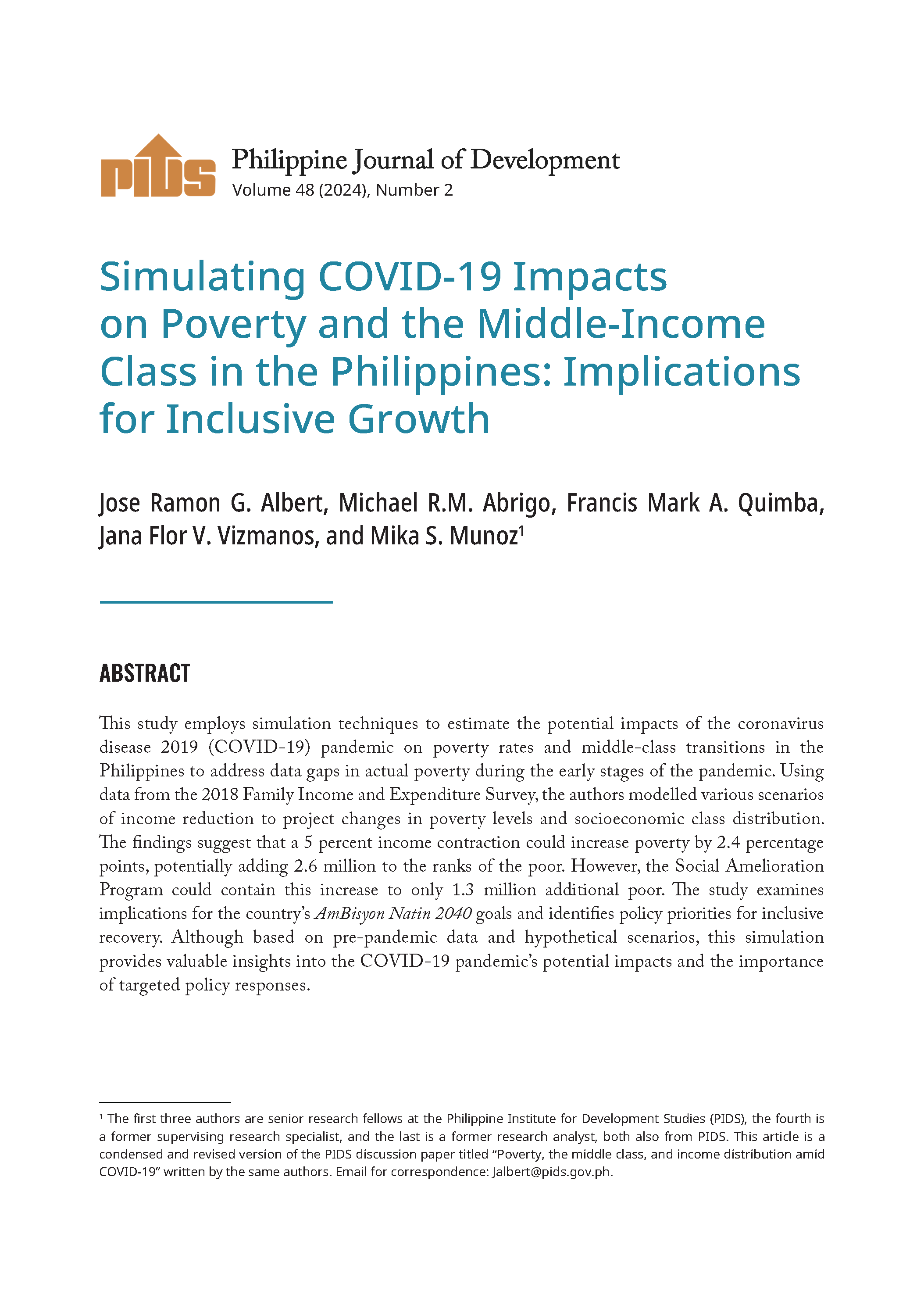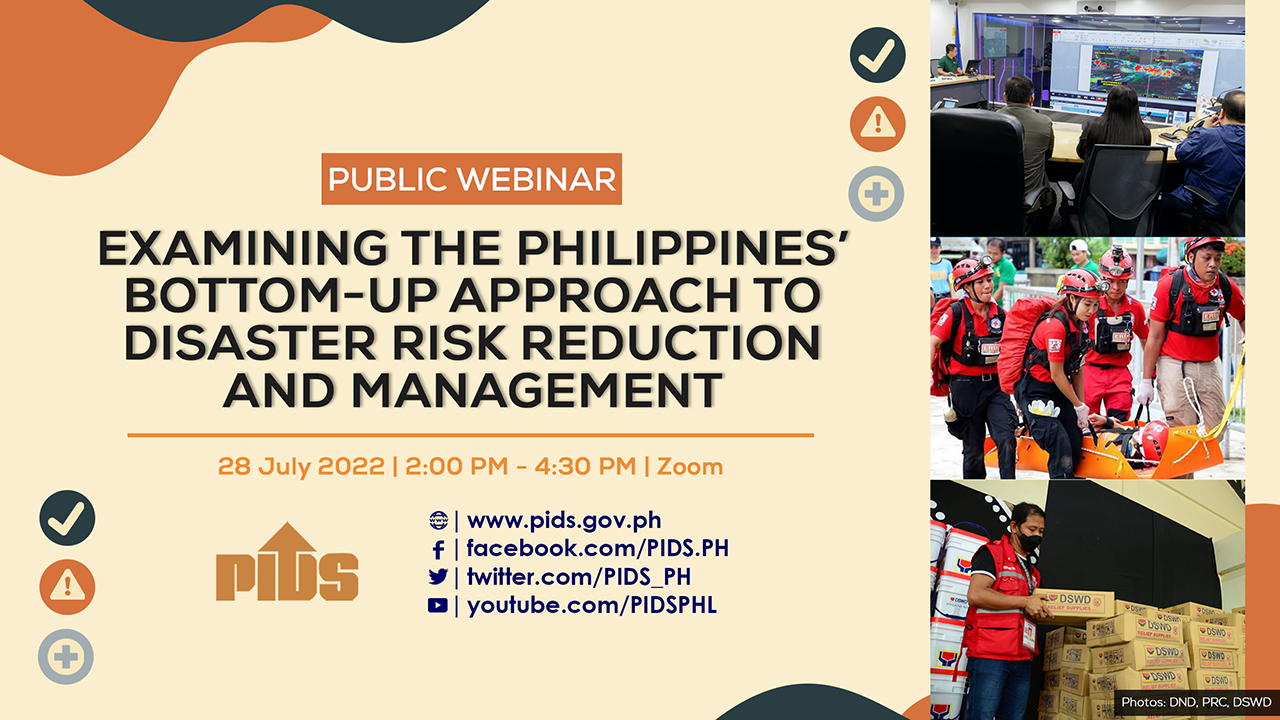ALL CANDIDATES for the May 9, 2022 elections promise better lives for Filipinos. However, according to a recent study of state think tank Philippine Institute for Development Studies (PIDS), it would be more challenging for the Philippines to reduce poverty and return to its pre-pandemic growth path with the COVID-19 pandemic.
As stated in the 2017-2022 Philippine Development Plan, the Philippines aspires to become an upper-middle-income country (UMIC) by 2022. However, the country’s poverty reduction has lagged behind Malaysia, Thailand, Indonesia, Viet Nam, and Myanmar. The first two are UMICs, while the last three are lower-middle-income countries.
The Philippines has had a boom-bust cycle of growth—growing for a few years and then slowing down. The country experienced the longest streak of sustained high growth from 2012 to 2019. However, the COVID-19 pandemic increased poverty incidence among families to 16 percent in 2020—up by 5.4 percentage points from 2019.
Many other issues affect the country’s poverty reduction efforts. For one, the poor tend to have lower access to education, which is an important pathway out of poverty. The lower-income groups have lower school attendance rates for all levels of education.
Another problem is the targeting of the Pantawid Pamilyang Pilipino Program (4Ps) beneficiaries, which suffers from leakage and exclusion.
Also, the poor have lower access to social protection schemes, such as PhilHealth, with the poorest quintile having a 59-percent coverage compared to the 79-percent coverage for the highest quintile.
Filipinos are also vulnerable to shocks, such as natural disasters, man-made shocks, and health risks, pushing the poor and the not consistently poor to poverty.
To improve the country’s poverty reduction efforts, the PIDS study emphasized the importance of redistributive policies to ensure that the poor are given opportunities to benefit from economic growth. Further, economic reforms should be promoted in agriculture, where majority of the poor are. Relatedly, the government should expand risk management tools for the agriculture sector to help farmers and fisherfolk cope with the effects of natural disasters. Reducing out-of-pocket expenses from illnesses, which disproportionately hurt the poor, is also essential.
The pandemic has shown us that many things needed fixing in the way this country is being managed. May we be able to select the right leaders to reduce poverty and steer us back to our pre-pandemic growth path.












